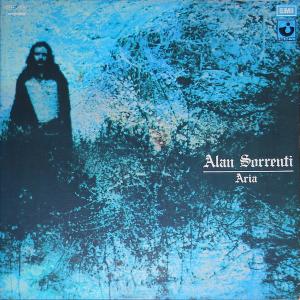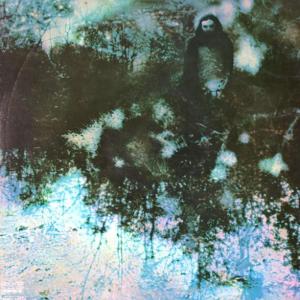Strawberry Bricks Entry:
Italian singer Alan Sorrenti spent some of his childhood in Wales (his mother was Welsh) but hailed from the fertile progressive scene in Naples. Originally in a group called Moby Dick, he struck out solo with a couple of albums for the Harvest label. Aria was first. The title track occupies the album’s first side. A sprawling, formless construct, it drifts back and forth between gentle, dreamy acoustic passages and some more aggressive progressive moments, all adorned with the violin of Jean-Luc Ponty. Very much influenced by Peter Hammill, Sorrenti’s tenor occupies a different range, but explores similar histrionics. The second side contains shorter pieces: The folksy “Vorrei incontrarti” (“I’d like to meet you”) is punctuated by a wonderful accordion from Albert Prince, while “La mia mente” (“My mind”) is much darker and unsettling. Drummer extraordinaire Toni Esposito kicks off “Un fiume tranquillo” (“A quiet river”), but the juxtaposition of the song’s sections is all Sorrenti: never easy, never comfortable and always interesting. A second album, Come un Vecchio Incensiere All’alba Di Un Villaggio Deserto, saw release the following year. It would follow a similar format, with the lengthy track occupying the second side. Francis Monkman and David Jackson guest, but the violin of American Toni Marcus remains the album’s standout. Sorrenti’s next album marked a change, and a hit single, “Dicitencello Vuje” b/w “Poco Più Piano,” sealed the move away from progressive rock. Shifting gears to commercial music, Sorrenti found great success in Italy with a funky, disco sound. His sister Jenny was in the Neapolitan band Saint Just, who issued a pair of notable albums for EMI with Sorrenti guesting.



